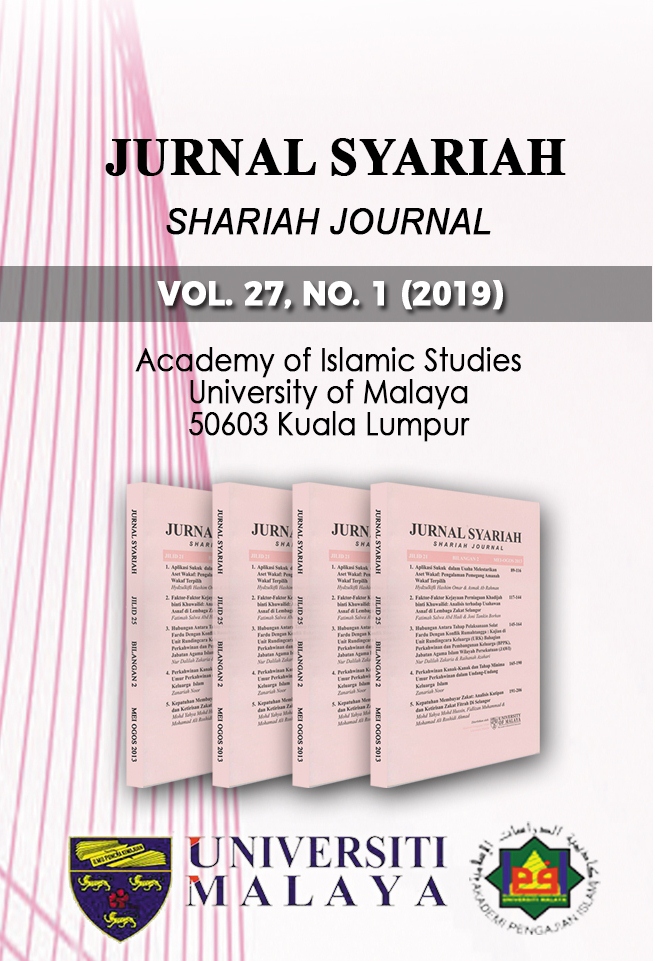PEMBANGUNAN TANAH WAKAF SECARA PENSWASTAAN: KAJIAN TERHADAP PROJEK MENARA IMARAH WAKAF OLEH MAJLIS AGAMA ISLAM WILAYAH PERSEKUTUAN
Development of Waqf Land Through Privatisation: A Study on Menara Imarah Wakaf Project By Wilayah Persekutuan Islamic Religious Council
DOI:
https://doi.org/10.22452/js.vol27no1.3Keywords:
development of waqf land, privatisation, Menara Imarah Wakaf, waqf reportingAbstract
Wilayah Persekutuan Islamic Religious Council (MAIWP) undertakes the development of waqf land through privatisation, funding from the government, or istibdal process. Development of waqf land through privatisation was undertaken on a piece of waqf land in Kuala Lumpur, owned by MAIWP, with land area of 1.2 acres. An istiṣnđ agreement was executed between MAIWP and Lembaga Tabung Haji (LTH) for the project. Building construction cost of RM151 million was funded by LTH and the construction was completed in 2011. This project is expected to give returns of RM56.60 million from a lease to MAIWP for 25 years. Ownership of the building will be transferred to MAIWP at the end of the lease period. Land development through privatisation is expected to solve the main issue of most waqf land could not be developed by State Islamic Religious Council (SIRC) institutions due to the absence or insufficiency of funds. Hence, the objective of this study is to examine in detail the development model of waqf land through privatisation regarding compliance with rules and regulations as well as recording and disclosure in the financial statements of SIRC. This study used the library research and field study methods. Data were obtained from semi-structured interviews with MAIWP officers who were involved in the development of waqf land. The findings of the study showed that the development of waqf land complied with rules and regulations related to the development of waqf land. Nevertheless, this study found several areas for improvement by MAIWP particularly in the aspects of asset reporting and waqf returns. The implication of this study may be used as a starting point by MAIWP in formulating a Waqf Act to strengthen waqf management in Wilayah Persekutuan in particular and Malaysia in general. Besides, the need for a Framework on Waqf Reporting is critical since the existing framework for financial reporting is more appropriate for commerical use. Several recommendations and policy implications have also been suggested in this study.
Downloads
Downloads
Published
How to Cite
Issue
Section
License

This work is licensed under a Creative Commons Attribution-NonCommercial 4.0 International License.
COPYRIGHT: All rights reserved. Not allowed to be reproduced any part of articles and contents of this journal in any form or by any way, whether electronic, mechanical, photocopying, recording or otherwise without permission in writing from the Chief Editor, Jurnal Syariah.











